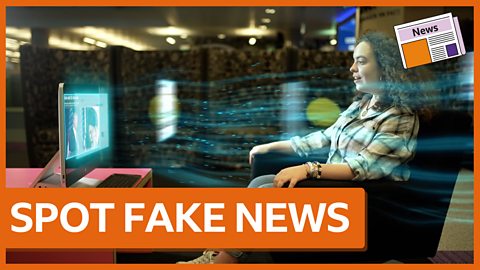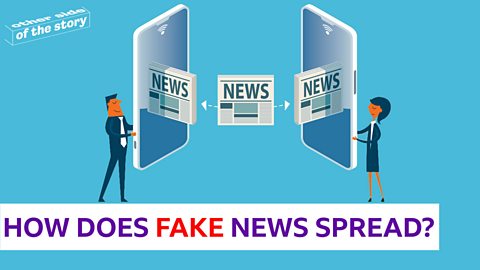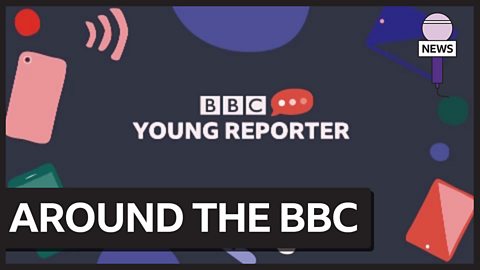Does everyone see the same news stories?
It might seem like the news effects everyone equally. On TV or in a newspaper, journalists and editors decide the kinds of stories and reports that appear, meaning that everyone who watches or reads these news sources will be seeing the same thing. But when we see news stories on social media, the experience is completely different.
Radzi Chinyanganya from looks at who decides what makes the news, from offline to online sources.
Algorithms
The decisions around the types of posts that we see when scrolling through social media are in the hands of algorithms rather than people, computer programs ran by companies that own the app or website that filter the posts in your feed.
The news stories that appear on search engines and social media are tailored to your personal information, which is collected through:
- your search history
- online shopping habits
- platforms you use
- details passed on when signing up to things online
- your privacy settings
So whether or not it's something scary about coronavirus or the latest celebrity scandal, all our feeds are personalised and will likely show different stories to everyone elseÔÇÖs.
What are filter bubbles?
If we take algorithms and combine them with the fact that we tend to follow other social media accounts who share interests and aspirations with us, it's not hard to see why we might only be seeing a very small and specific view of the world on our feeds.
This is called a filter bubble and the clip below shows how easy it is to get trapped in one.
But if our online habits and algorithm filters create a personal feed where we only see things that we agree with, whatÔÇÖs the problem? Well, if a news story comes out that might not be in line with your opinions and beliefs, the algorithms might not surface it in your feed.
As well as this, fake news can spread really quickly as everyone in a filter bubble might share the same viewpoint ÔÇô and itÔÇÖs much easier to believe a fake story when other accounts you like and follow are sharing and agreeing with it too.
Is this the same as an echo chamber?
You may have heard the terms ÔÇÿecho chamberÔÇÖ and ÔÇÿfilter bubblesÔÇÖ used in the same way, but there is a distinction between the two.
Laura Garcia from First Draft, an organisation working to protect people against misinformation, explains how these terms are different.
An echo chamber is the way in which we only encounter information from like-minded people. A filter bubble is a space where our previous online behaviour (search history, likes, shares and shopping habits) influences what we see online and on our social media feeds and in what order.
How to burst your filter bubble
Being trapped in a filter bubble makes it seem like the internet is reacting in just one way, whereas there are always different points of view. Here are three top tips on how you can burst your bubble to see whatÔÇÖs really going on:
- Beat the algorithms ÔÇô algorithms cover your feed with posts based on the people and pages you already follow. Try to follow accounts that you disagree with ÔÇô that way youÔÇÖll start to see different takes on the story than the one youÔÇÖre used to
- Widen your sources ÔÇô DonÔÇÖt always stick with your go-to socials or websites. Visit a broad range of places online to get a bigger picture, but make sure these sources can be trusted
- Go offline ÔÇô ItÔÇÖs always good to chat to friends, family and people at school in real life, rather than just getting stories from your filter bubble. DonÔÇÖt trust everything on your feed and remember that other people might think differently.
Where next?
Tips for spotting fake news online
Nihal Arthanayake looks at some simple steps which will help separate fact from fake.

How does fake news spread?
Vick Hope finds out how fake news plays on our emotions and why we should pause before we share.

Fake news and ┤¾¤¾┤½├¢ Young Reporter
As part of ┤¾¤¾┤½├¢ Young Reporter, top journalists give you the lowdown on how to weigh up whatÔÇÖs real and whatÔÇÖs fake.

Fact or Fake?
Find out how to spot and stop fake news with ┤¾¤¾┤½├¢ Bitesize.
